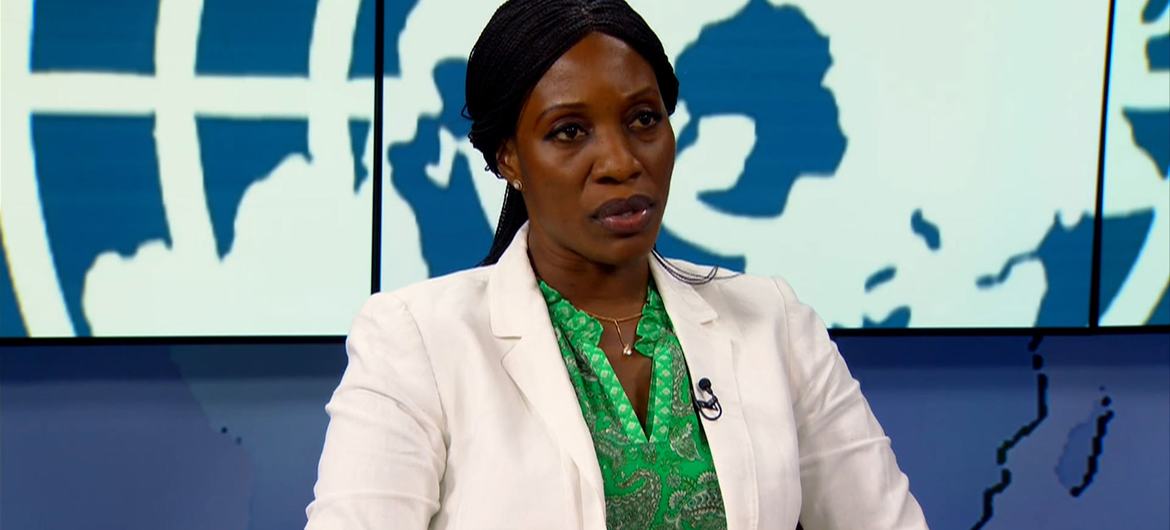
UN Calls for Civilian Protection
moatinon
A senior UN official has urged the UN Security Council to protect civilians in Sudan, enable unhindered humanitarian access to those in need, and provide funding, highlighting the unprecedented scale of needs in Sudan that require an equally unprecedented mobilization of international support.
In a briefing to the Security Council on Wednesday regarding the situation in Sudan, Edem Wosornu, Director of Operations and Advocacy at the UN Office for the Coordination of Humanitarian Affairs (OCHA), said that the ongoing conflict, which has lasted nearly two years, has caused immense suffering and turned parts of the country into a living hell. She emphasized that the Sudanese people deserve better from both their leaders and the international community.
Wosornu expressed concern about developments in North Darfur, including in the Zamzam displacement camp, as well as in Khartoum and the southern regions of the country.
She stated, “Even after eight months since the Security Council adopted Resolution 2736, civilians in North Darfur continue to face attacks.” She noted escalating violence in and around Zamzam Camp, reports of summary executions of civilians in areas where control has shifted, and the spread of fighting into new areas in North and South Kordofan.
“We remain deeply concerned about the grave risks faced by local responders and community volunteers in Khartoum and elsewhere,” Wosornu added.
She also pointed to two humanitarian appeals launched last week by UN Under-Secretary-General for Humanitarian Affairs Tom Fletcher and UN High Commissioner for Refugees Filippo Grandi. These appeals call for 6 billion to support nearly 21 million people in Sudan and up to 5 million others, mostly refugees, in neighboring countries.
Wosornu urged the international community and Security Council members to spare no effort in mitigating the crisis.
She presented three key requests to the council. First, protecting civilians by urging the Security Council and all influential member states to take immediate action to ensure that all actors comply with international humanitarian law and safeguard civilians, infrastructure, and essential services. Second, facilitating humanitarian access, stressing that "there must be real implementation of repeated commitments to enable unhindered access to civilians in need." Third, increasing funding, as "the scale of needs in Sudan is unprecedented and requires an equally unprecedented mobilization of international support, including flexible funding."
She concluded by addressing Security Council members: “Now more than ever, the people of Sudan need your action.”
Aid Suspension at Zamzam Camp
Meanwhile, the World Food Programme (WFP) announced on Wednesday that it has been forced to temporarily halt the distribution of life-saving food and nutritional assistance in the famine-stricken Zamzam Camp due to intense fighting. WFP stated that escalating violence in and around the camp left its partners with no choice but to evacuate staff for their safety.
“Without immediate assistance, thousands of desperate families in Zamzam could starve to death in the coming weeks,” said Laurent Bukera, WFP’s Regional Director for East Africa and Acting Country Director for Sudan. “We must safely and swiftly resume the delivery of life-saving aid in and around Zamzam Camp, and to achieve that, the fighting must stop, and humanitarian organizations must be granted security guarantees.”
Famine in Zamzam Camp was confirmed in August. WFP noted that despite multiple attempts, it has managed to transport only one convoy of humanitarian supplies to the camp since then.
The organization cited poor road conditions during the rainy season, “deliberate obstruction by the Rapid Support Forces,” and ongoing fighting between the RSF and the Sudanese Armed Forces along the route to Zamzam Camp as major obstacles preventing access. The closure of the Adré border in the first half of 2024 further prevented WFP from pre-positioning food supplies in the camp.
To provide assistance when insecurity prevents access, WFP has launched an online self-registration platform for digital cash transfers in North Darfur.
“This initiative helps ensure that people can receive assistance even when we are forced to suspend operations until conditions allow for the safe passage of humanitarian workers and convoys,” Bukera explained.

